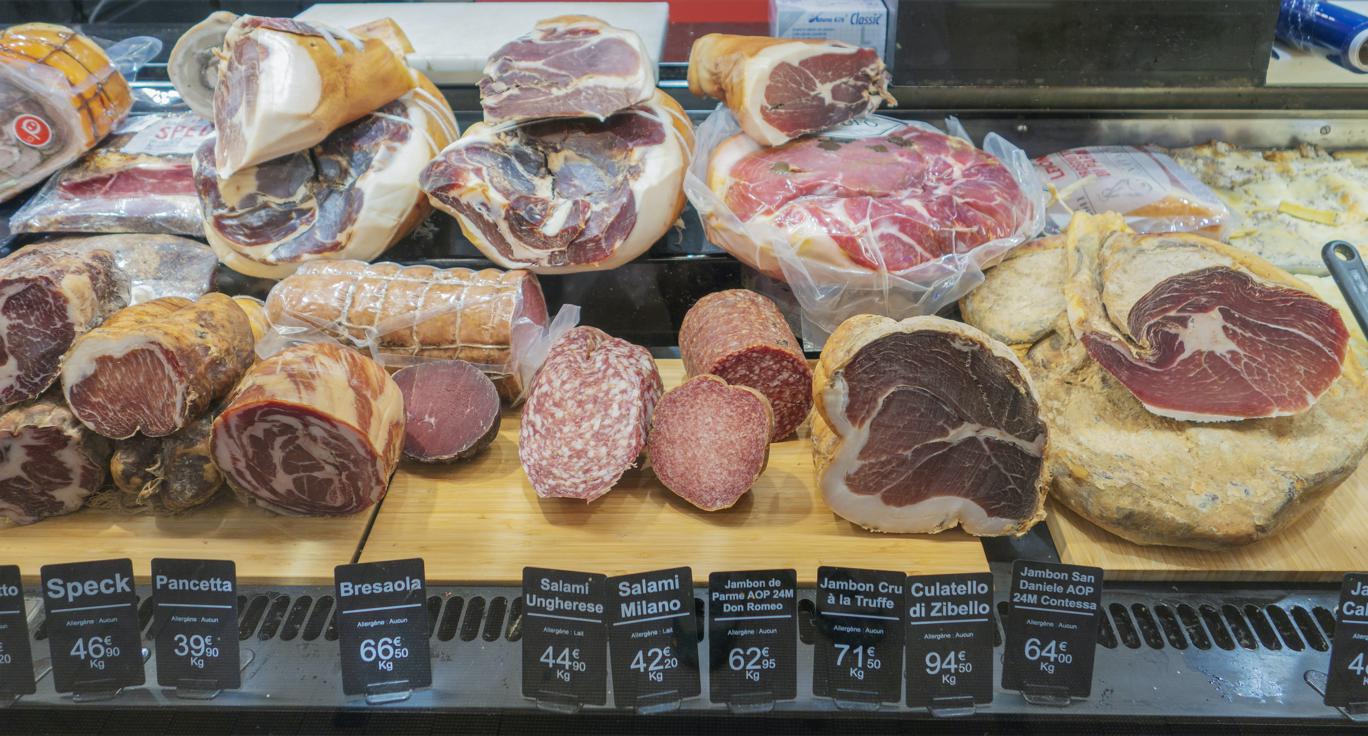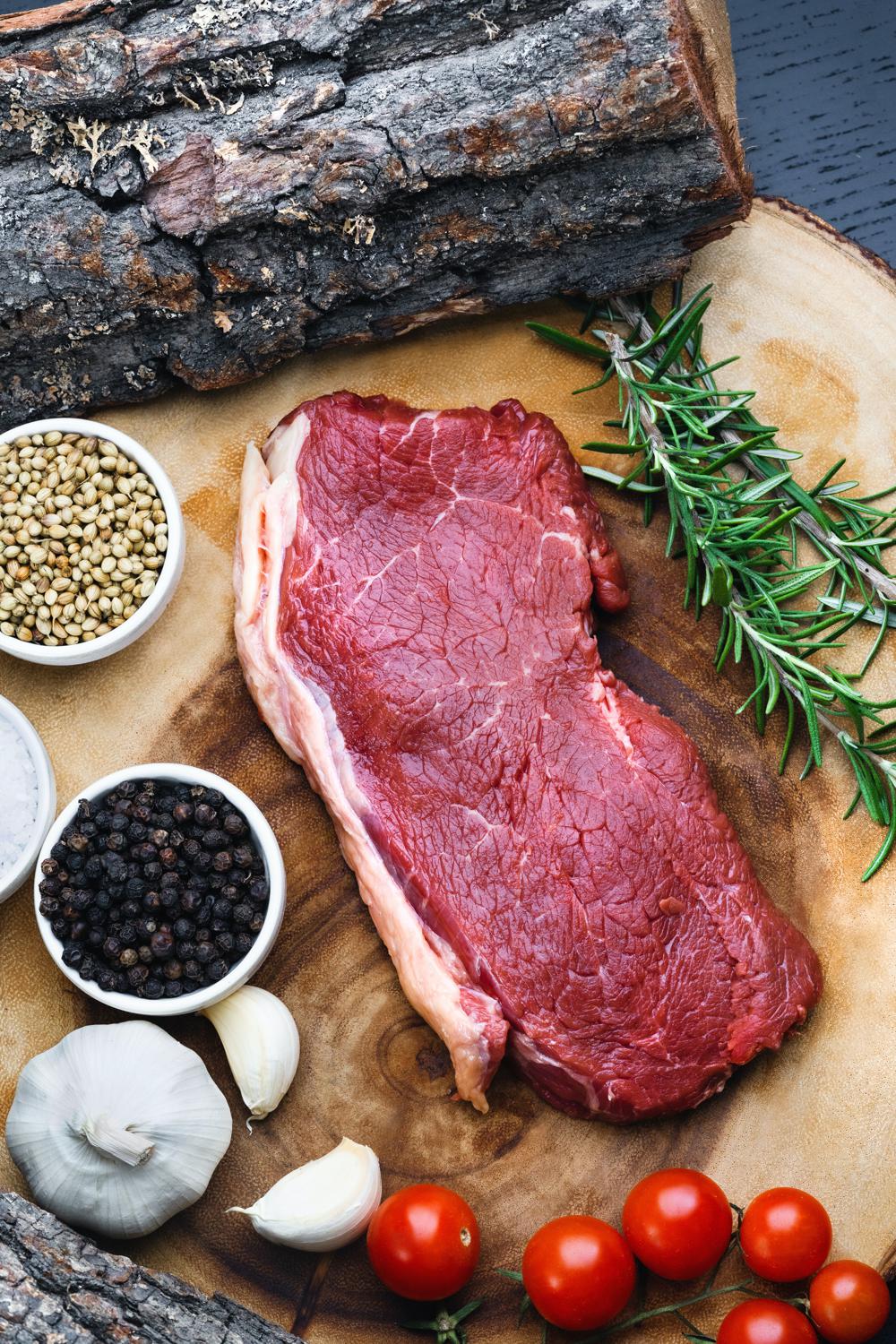Summary. The carnivore diet, based on only animal foods, has sparked controversy among nutritionists and health professionals. Proponents believe it encourages weight loss and improved health, while detractors think it lacks important nutrients and is a dangerous way to eat long-term. Further, it eliminates food groups like grains and legumes, which are important sources of fiber, antioxidants, vitamins, and minerals. Ultimately, the debate on the pros and cons of the carnivore diet is ongoing.
The concept of the carnivore diet has been gaining traction as more and more people learn of its potential benefits. But, what exactly is the carnivore diet and why do some people think it is not a healthy diet? In basic terms, the carnivore diet consists of only animal-sourced foods such as beef, pork, poultry, fish, eggs, and some dairy products.
As opposed to forms of dieting which involve excluding certain types of food and focus on plant-based foods, the carnivore diet requires eating only animal-based products. This means eliminating plant-based proteins, fruits, vegetables, carbohydrates, grains, legumes, nuts, and seeds from your diet. This strict restriction of food has many wondering why anyone would do this and if the carnivore diet is actually healthy.
Do the health benefits outweigh the risks of such a restrictive diet? Is it possible to get all the nutrients and vitamins we need from animal-based sources only? These are the questions we will be exploring in this blog. We will be looking at published scientific studies of the carnivore diet to weigh the evidence of its claimed benefits and risks. We will also consider feedback from individuals who have tried the carnivore diet and offer our own interpretations and conclusions.
Is the carnivore diet a healthy and viable long-term alternative to traditional dieting or is it dangerous and unsustainable? Could going meat-only be beneficial? Is it possible to get the nutrients we need without plant-based products? We look forward to examining and discussing these questions with you in this blog.
Nutritional Deficiencies – Exploring the Health Risks of Eating Animal-Based Diets

Many people are questioning whether the carnivore diet is healthy or not. This is largely due to the fact that the diet consists almost entirely of animal-based foods which are not as nutritionally-rich as plant-based foods. While the carnivore diet does offer many benefits, such as helping with weight loss, reducing inflammation, and improving certain mental health conditions, it can also deprive the body of essential nutrients and minerals. This can lead to nutritional deficiencies over time, and these deficiencies can cause long-term health complications.
Animal-based diets are often higher in proteins and fats than plant-based diets. While these macronutrients are necessary for a healthy diet, they often come with some nutritional deficiencies such as a lack of iron, calcium, magnesium, and vitamins B12 and D. These deficiencies can have serious consequences, such as anemia, fatigue, weak bones and stunted growth.
Therefore, it is important that carnivore dieters pay particular attention to eating nutrient-rich foods and ensure that they are consuming a balanced diet. The bottom line is that, while the carnivore diet may offer some health benefits, it can also pose certain risks, especially if nutritional deficiencies are not carefully monitored.
It is important to note that no single diet is right or wrong; it is all about finding what works best for each individual and their lifestyle. However, if you choose to follow a carnivore diet, be sure to take extra care to monitor your nutrition and supplement where necessary.
Digestive Complications – Enduring the Strain on the Digestive System with a Carnivore Diet

As more and more people are turning to a carnivore diet, questions have been raised as to whether this high meat-based diet is actually healthy. On the surface, the carnivore diet appears to offer numerous health benefits due to its higher fat content and potentially lower carbohydrate intake. However, some people worry that the lack of variety on a carnivore diet has the potential to lead to digestive complications, leaving the body without the range of vitamins and minerals it needs to stay healthy.
When discussing dietary health, it’s important to remember that what works for some, may not work for everyone. As such, when beginning a carnivore diet, it’s important to ensure that the body is able to efficiently digest and absorb the nutrients from the animal-based proteins. While the carnivore diet’s high-protein and high-fat content can be beneficial for some, those with a pre-existing gut health issue may find that the diet exacerbates their symptoms.
For some, the shift away from a plant-based diet can lead to side effects such as constipation, gas, bloating, and general poor digestion. In addition, because the carnivore diet provides only a narrow range of micronutrients, long-term deficiencies of certain nutrients can occur. For example, the diet’s lack of dietary fiber can cause a buildup of toxins in the body, leading to a weakened immune system, joint stiffness, and fatigue. To ensure an efficient transition, individuals adopting a carnivore diet must be mindful of their dietary intake, and make sure that they are meeting all their dietary needs. A well-balanced carnivore diet should include a variety of sources of proteins, such as organ meats and wild-caught fish.
Supplementation may also be necessary to ensure adequate micronutrient intake, especially in cases of vitamin deficiency. Ultimately, it is important to remember that the carnivore diet is not suitable for everyone. Those suffering from existing digestive or health issues should consult with their doctor before beginning any new diet, to ensure it is a safe and appropriate option for them. In addition, if signs of digestive complications develop, it is worth considering an adjustment to the carnivore diet, or a complete switch back to a more plant-based way of eating.
Hormone Disruptions – Enduring Abnormal and Unstable Testosterone Levels

It’s no secret that the carnivore diet is becoming increasingly popular, with some people claiming it is the healthiest diet out there. But, there are still a lot of people who are skeptical of this diet and think that it’s not healthy. So, why do some people think the carnivore diet is not healthy?
One of the biggest criticisms of the carnivore diet is that it is too restrictive. While it is true that it does not include most plant-based food groups, such as fruits, vegetables, and grains, many studies have suggested that these food choices are important for a healthy, balanced diet.
Another argument against the carnivore diet is the lack of dietary fiber. Dietary fiber plays an important role in digestion as well as in keeping you feeling fuller for longer. But since the carnivore diet does not include any plant-based food groups, it is more difficult to obtain fiber. Another concern about the carnivore diet is the issue of sustainability.
In particular, the amount of methane gas that these types of foods produce can be damaging for the environment. Finally, although it is generally accepted that the carnivore diet can be effective for weight loss, some people think that the diet is not healthy in the long-term due to its lack of essential nutrients and vitamins.
There is also some concern that the high levels of animal proteins in the diet can lead to kidney disease and other health issues. Ultimately, the carnivore diet can be a healthy choice for some people, but it is not without its potential problems. Before deciding to try this diet, it is important to do your research and consult with a healthcare professional to make sure it is the best choice for you and your lifestyle.
Unsaturated Fats – Risks of Eating Too Much Red Meat and High-Fat Dairy

It is true that a diet high in red meat and high-fat dairy products can increase an individual’s risk for developing chronic conditions such as heart disease and diabetes. The carnivore diet, which encourages a diet of mainly animal proteins, is especially detrimental for those already prone to these illnesses.
While some may argue that the benefits of the carnivore diet, such as improved bowel movements and better weight management, outweigh the risks, the long-term effects of a diet solely based on animal proteins should not be ignored. Unsaturated fats, which are found in fish and plant-based sources, have been found to reduce an individual’s risk for developing heart disease and other chronic conditions.
Dietary sources of unsaturated fats include salmon, mackerel, avocados, nuts, and seeds. These nutrients have been found to reduce inflammation, which is the root cause of many chronic illnesses. In addition, unsaturated fats help to lower bad cholesterol and triglyceride levels, while keeping blood pressure in check.
Red meat is specifically known to raise cholesterol levels and increase an individual’s risk for developing certain cancers. This is because red meat is high in saturated fat and sometimes contains carcinogenic compounds. High-fat dairy products are also unhealthy due to their high saturated fat content. While a well-balanced diet should include animal proteins, leaning too heavily on animal proteins (i. e. the carnivore diet) can ultimately be harmful.
Conversely, those following the carnivore diet should incorporate plant-based sources of unsaturated fats and vegetables to help reduce their risk of developing chronic illnesses. Additionally, it is always a good idea to include fruits and fiber-rich grains in a healthy diet to ensure all important nutrients are present.
Ultimately, the risks of a diet high in red meat and high-fat dairy products should not be taken lightly. For those looking to make healthier eating choices, unsaturated fats should become a regular component of their diet. Focusing on getting a balance of lean proteins, vegetables, fruits, and fiber-rich grains is ultimately the best way to promote a healthy lifestyle.
Iron Deficiencies – The Risk of Consuming Too Little Iron

Iron deficiency is a serious health issue that can be caused by an inadequate iron intake. Not getting enough iron in your diet can compromise your health, leaving you at risk for fatigue, anemia, weaker immunity, and other health problems. Though it’s possible to be deficient in iron without even realizing it, it’s important to be aware of the effects of iron-deficiency and the methods you can take to help prevent it.
The carnivore diet has recently gained traction in the health and fitness industry, with some people claiming it to be the ultimate solution for weight loss or other health-related interventions. However, there’s a lot of skepticism surrounding this type of diet, as many believe it does not provide enough essential nutrients that are necessary for a healthy lifestyle. Many claim that a carnivorous diet is not healthy, due to its lack of iron-rich foods.
Iron is an essential mineral for good health that enables the body to transfer oxygen from the lungs to other cells in the body. While it’s possible to get adequate iron from animal flesh alone, it may not be as easy to get from the carnivore diet as it would be from a more varied diet. This is because different meats have varying amounts of iron, and some contain more than others. Additionally, while animal organs contain some iron, they don’t provide as much iron as vegetables for vegetarians. Another reason why some people think the carnivore diet is not healthy is due to the potential for an unbalanced diet.
A carnivore diet focuses solely on animal flesh, which means there’s a lack of fresh fruits, vegetables, grains, and legumes. Without these important food groups, it can be very hard to get all of the essential nutrients that the body needs, including iron. Ultimately, it’s important to remember that a carnivore diet should not be taken as the one and only health solution.
Everyone is different and has different needs when it comes to what they should and should not be eating, so it’s important to consult with a healthcare professional or dietitian about what is best for you. Additionally, if you choose to go on a carnivore diet, it is important to monitor your iron intake to ensure that you’re getting enough to maintain good health and prevent iron deficiency.
Vitamin and Mineral Imbalances – Not Intaking the Necessary Nutrients for Overall Health

Have you heard of the carnivore diet? This diet consists of only animal proteins and fat, and it eliminates all plants, grains, and legumes. Many people have adopted this diet recently as they believe it is a healthier way to eat.
However, some experts are concerned that the lack of plant-based foods may lead to a host of vitamin and mineral imbalances that can have negative effects on overall health. Vitamin and mineral deficits can be difficult to detect because symptoms often don’t appear until the deficiency has become severe.
Mineral imbalances can cause fatigue, headache, weak bones, poor concentration, and mood changes. In extreme cases, certain vitamins and minerals can even lead to life-threatening conditions like anemia. The danger with the carnivore diet is that most of the vitamins and minerals can only be found in plant-based foods. Consuming only animal proteins and fats can leave us lacking in magnesium, potassium, iron, calcium, and vitamin C.
It also doesn’t help that many of the foods associated with the carnivore diet, such as processed meats and poultry, dairy products, and eggs, incorporate large amounts of saturated fat and cholesterol. This makes it more difficult to maintain healthy cholesterol levels and can lead to a higher risk of heart disease. For these reasons, some experts argue that the carnivore diet might not be as healthy as it is made out to be.
It is important to consult a nutrition professional to evaluate the risks of any diet plan, especially one that eliminates entire food groups. It’s possible to create balanced and healthy meals without cutting out entire food groups, so it’s important to consider the long-term benefits and risks before committing to any diet plan.
Cortisol Imbalances – The Stressful Effects of Ignoring the Adrenal System

Cortisol imbalances can have some serious effects on your health if left unchecked. The adrenal glands, which are located atop the kidneys, are responsible for releasing cortisol in the body. When the body is unable to regulate the amount of cortisol released, it can lead to several unpleasant symptoms. There may also be a connection between cortisol imbalances and diet. This is particularly true in the case of the carnivore diet. This type of diet does not include any plant-based foods.
This extreme approach to nutrition has gained some notoriety in recent years, due to its perceived quick-fix potential to a variety of health problems. While those who practice it may experience some temporary improvements, the carnivore diet does not adequately provide for the body’s nutritional needs. One of the primary concerns with this type of diet is the effect it can have on cortisol levels. Animal-based foods are higher in saturated fats and lead to the formation of cholesterol. The body is then forced to use cortisol to break down these foods, which can lead to elevated cortisol levels.
Symptoms of adrenal fatigue include fatigue, weak immunity, difficulty sleeping, depression, and cravings for sugar and other simple carbohydrates. They can also be a contributing factor to skin problems, digestive issues, and general symptoms of illness.
The carnivore diet may offer some quick results, but it can cause serious health problems in the long term. Therefore, it’s best to think twice before jumping on the carnivore diet bandwagon. Eating a balanced diet, including plant-based foods, is the best way to keep cortisol imbalances at bay and prevent the unpleasant symptoms that can come with it.
Bottom Line
Why do some people think the carnivore diet is not healthy? Nutrition is an inexact science and what works for some people may not work for others. Some people argue that the carnivore diet does not provide adequate nutrition because of the absence of vitamins, minerals, and other essential nutrients.
While it is possible to get sufficiently high levels of these vitamins and minerals from meat, many dietitians and health experts point to the additional health benefits of fiber, phytonutrients, and antioxidants found only in plant foods. There is also a concern that the carnivore diet does not provide enough of the essential fatty acids like omega-3 and omega-6, which are essential for the proper functioning of the brain and heart.
Ultimately, the carnivore diet is not for everyone. However, if you substantially reduce your consumption of carbohydrates and include a balanced mix of lean proteins and fats, along with plenty of water, you just might reap the many health and weight loss benefits associated with this radical diet. But before you do, be sure to consult with a trusted medical professional to ensure that the carnivore diet is safe and right for you. The carnivore diet provides many benefits and is a viable option for those that can tolerate it.
But it is important to remember that no aspect of a diet is a one-size-fits-all solution, and the carnivore diet is no exception. Everyone’s needs are different, and it is important to consider your own individual health and nutrition needs when deciding if the carnivore diet is the right choice for you. Have you tried the carnivore diet or do you have any questions about it? Share your thoughts and experiences with us in the comments!
Frequently Asked Questions:
Why do critics argue that the carnivore diet is not healthy?
Critics of the carnivore diet express concerns due to its exclusion of plant-based foods, which are important sources of fiber, vitamins, minerals, and phytonutrients. They believe that a diet lacking these essential nutrients may lead to nutrient deficiencies and increase the risk of various health problems.
Are there specific nutrient deficiencies associated with the carnivore diet?
Yes, the carnivore diet can potentially lead to deficiencies in nutrients like dietary fiber, vitamin C, vitamin E, folate, potassium, magnesium, and phytonutrients. These deficiencies can have detrimental effects on overall health and increase the risk of chronic diseases.
How does the lack of dietary fiber in the carnivore diet impact health?
Dietary fiber is crucial for digestive health, maintaining a healthy weight, and reducing the risk of heart disease, type 2 diabetes, and certain types of cancer. The absence of fiber from plant-based foods in the carnivore diet can contribute to digestive issues, constipation, and increased disease risks.
Can the high consumption of saturated fat in the carnivore diet be a concern?
The carnivore diet often includes foods high in saturated fat, such as red meat and full-fat dairy products. High intake of saturated fat has been associated with increased risk of heart disease and other cardiovascular problems. Critics argue that this aspect of the carnivore diet may be detrimental to heart health.
Are there concerns about the long-term impacts on gut health?
The exclusion of plant-based foods on the carnivore diet may negatively affect gut health by reducing the diversity of gut microbiota. A lack of dietary fiber and plant compounds that promote a healthy gut environment can disrupt the balance of beneficial bacteria and impact overall gut function.
Do critics worry about the environmental impact of the carnivore diet?
Yes, critics of the carnivore diet raise concerns about its environmental impact. Animal agriculture, particularly intensive livestock production, contributes to greenhouse gas emissions, deforestation, and water pollution. The reliance on animal products in the carnivore diet may not be sustainable on a global scale.
What is the overall consensus among health professionals regarding the carnivore diet?
The carnivore diet is a subject of ongoing debate among health professionals. While some acknowledge potential benefits for specific individuals, most experts emphasize the importance of a balanced diet that includes a variety of nutrient-dense foods from different food groups. The exclusion of plant-based foods in the carnivore diet raises concerns about long-term health implications.















